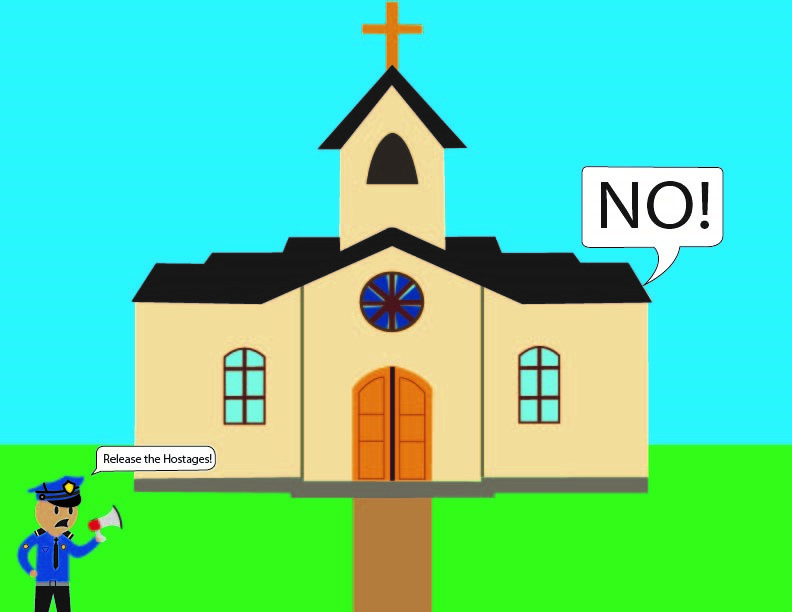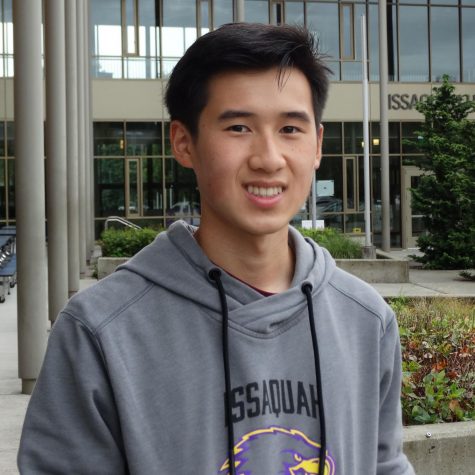American Missionaries Are the Newest Victims of Haiti’s Kidnapping Surge
November 29, 2021
As of Nov. 17, over a month has passed with 17 missionaries being held captive near the Haitian capital, Port-au-Prince. The missionaries were the victims of a gang-lead vehicular kidnapping on Oct. 16 as they were leaving a local orphanage. The group is made up of 16 Americans and one Canadian, consisting five men, seven women, and five children, the youngest of which is just eight months old.
Haiti, a third-world Caribbean island with a population of about 11 million (about the size of Ohio), is the poorest country in the Western Hemisphere. This is largely due to chronic political instability and the consequential lack of social infrastructure, first taking hold of the country over two centuries ago when Haiti broke free of French colonial rule. In fact, Haiti’s president, Jovenel Moïse, was assassinated in July, and was swiftly replaced by acting prime minister Ariel Henry. Moïse was said to be in cahoots with many of the gangs who favor abduction as a method of achieving power and monetary gain. Foreign intervention and debt, as well as natural disasters, are also major hindrances to Haiti’s development.
Due to an understaffed, inadequate, and corrupt police force, the capital is overrun with crime and gang violence, and the abduction of the 17 missionaries is one of hundreds to take place in Haiti since January. Kidnapping rates slowed in the August following Moïse’s assassination, but picked back up in September, with approximately 117 kidnappings that month according to the Center for Analysis and Research in Human Rights in Port-au-Prince.
The gang responsible for the 17 missionaries’ abduction, the 400 Mawozo, has around 150 members, and has been growing in strength for the last three years under the leadership of Wilson Joseph, who goes by the alias Lanmò Sanjou, or “Death Without Days.” On Oct. 21, Joseph appeared in a video wherein he addressed “the people that haven’t paid the bills yet,” meaning the FBI, and pledged that if he did not receive the money, he would “put a bullet in the heads” of the missionaries. This comes despite the FBI warning the 400 Mawozo of the possible consequences they would face if any harm were to come to the missionaries. In general, negotiation between the FBI and the Port-au-Prince police, and the 400 Mawozo has yet to yield any resolutions.
Following the release of the video, Haiti’s national police chief Léon Charles, resigned unexpectedly. This was also likely in response to the capital-wide demonstrations protesting Haiti’s various inadequate leaders and the reality they have collectively created, including Henry himself.
Some of these protests were held in support of the captive missionaries, demanding their release. One protestor told VOA reporters that he believed the missionaries were largely responsible for the Haitians they helped having homes to live and being able to give their children an education. “It’s they who built a road that we can travel on today,” he said. Putting himself in the shoes of the missionaries, Senior Josh Delgadillo said he would feel betrayed: “I’m sure they’re trying to do something good for the people of Haiti, and it’s kind of unjust that that’s how they’re being repaid.”
The work of the missionaries included supporting thousands of Haitian students, providing medicine to health center and food for the elderly and at-risk, as well as distributing Christian literature and teaching Haitian pastors. In the weeks before their abduction, the group had participated in a rebuilding project for those who lost their homes in an August earthquake.
In response to the abduction, there has been some public debate over whether these workers should have been in Haiti in the first place, considering its known danger, as well as the history of Christian missionaries entering places where they may be unwelcome. In fact, in August, the U.S. issued a statement discouraging U.S. citizens from travelling to Haiti. The organization the group is from, Ohio-based Christian Aid Ministries, has since defended their choice to send volunteers to Haiti, citing religious motivation.
In regard to this debate, sophomore Aaryan Rattan believes it is good that the missionaries are trying to help, but that he suspects their primary motivation is to spread their religion, and he does not feel that this is an entirely valid reason for travelling to dangerous countries. “The missionaries have their religion, other people have theirs, and I think they should just let it be,” Rattan said. Junior Giselle Batingan largely agreed, adding, “They knew the possible consequences, they knew how dangerous it could be for them, and they kind of disregarded that. But I guess that was their decision.” Similarly, Delgadillo emphasized that, in the end, it was the missionaries’ choice to go, and they had every right to make that choice. “The connotation of a missionary is definitely bad because it’s associated so much with imperialism,” he went on. “And while there’s a good reason for that, I would hope that we can start to separate those two, and just focus on the religion itself and the good it’s doing,” said Delgadillo.
Remarkably, when it comes to Haitian gang abductions, there has been a significant increase in the targeting of religious figures, such as missionaries or church officiates. Delgadillo suggested this may have something to do with the gangs’ desire to challenge existing power structure. “They want to prove that they’re the real power in Haiti,” he said, adding that religious figures might be an easy target to go for.
This is especially interesting considering that most of the gangs, including the 400 Mawozo, are known for their indiscriminate and seemingly random kidnappings. Most of the victim of Haitian gang abductions are everyday Haitians. This specific abduction has garnered so much media attention because of the identities of the victims – they are Americans. Back at the protests in Port-au-Prince, another protestor told VOA, “We are asking for [the missionaries’] freedom right away. And we are asking the kidnappers to let us live in peace.”
Anyone and everyone are vulnerable. “You can’t walk around after 6:00 p.m.,” a Haitian deportee, Roody Etienne, told the Washington Post. “They kidnap everyone,” he said. Etienne, along with his wife and child, were deported from Texas last month as part of a wave of Texas expulsions of Haitians. They are now living in a gang-infested zone in Haiti until they can find somewhere else to go. Freshman Juliana Kampf says that if she were living in Haiti during this outbreak of gang violence, she would want to leave: “It’s scary to think that one day I could be taken, or a family member, or someone I love.” Of course, as we see with Etienne, many do not have the means to escape, and even those who do are often sent back.
All this taken into consideration, the future of the missionaries and the country they are held in is unclear. Rattan speculates that the U.S. will eventually have to use force in order to bring about an end to this mess. Delgadillo, on the other hand, thinks that, left with no other choice, the FBI will pay the ransom out of concern for its image. “I feel bad talking about it as if they would only save the people in order to improve their image,” he said, “but as a gigantic organization, that’s what they would want – and 17 million dollars is nothing to the FBI.” He added that if no resolution has been reached yet, he does not expect negotiation will be very productive in the near future. “I do think the U.S. would do anything to prevent the Americans from being killed,” he said.




